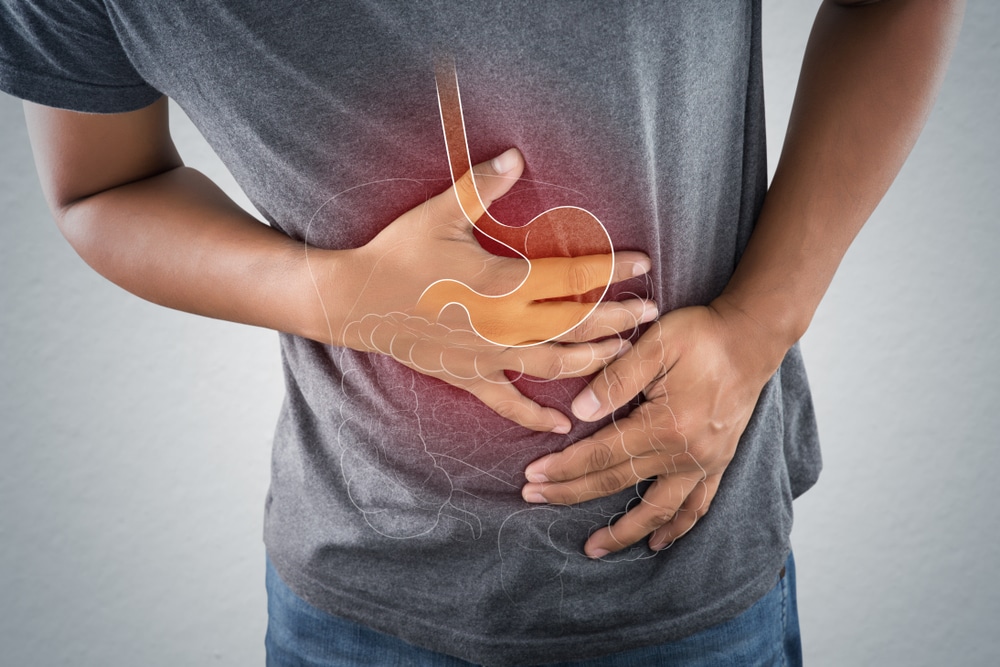Vomiting though not a disease, the feeling of doing so right after a meal could indicate an underlying gastrointestinal condition, such as food poisoning, ulcer, gastritis, and bulimia.
Vomiting shortly after eating is a common gastrointestinal symptom that may occur for a brief period of time or last for an extended period. The time frame depends on the condition a person may have.
Triggers that may set off the feeling of nausea include abdominal infections, food allergies, issues in the inner ear, a head injury, brain infection, tumours, or migraine headaches.
Reasons behind this symptom
Here are several possible causes of vomiting after eating:
Infection and food poisoning
Food that may be contaminated either by storing incorrectly or not cooking it thoroughly may cause gut issues and lead to food poisoning.
Bacteria growth is the usual cause of abdominal infection, and one may experience the feeling of regurgitating within hours of having food that has gone bad.
Viral infections are yet another factor that could cause vomiting. Contracting them comes either from consuming contaminated food or even when in close contact with another person who had been infected with the virus.
Irritable bowel syndrome (IBS)
A chronic condition that causes bloating and increased gas may result in nausea and vomiting after meals.
Gastrointestinal issues
Nausea after eating may occur if an organ within your digestive system stops functioning correctly.
For example, gastroesophageal disease (GORD) happens when the ring muscles between the oesophagus and the stomach cannot work correctly to prevent the backflow of food.
If you have GORD, you may experience a burning sensation, also known as heartburn, throughout the oesophagus that causes nausea, especially after eating.
Gallbladder disease is another cause of improper digestion of fats, and as a result, when foods high in fat are consumed, you may vomit.
The pancreas is another organ that is responsible for ensuring proper digestion.
If this organ becomes inflamed or injured—a condition known as pancreatitis—it inhibits the release of proteins and hormones necessary for digestion, resulting in nausea and other symptoms such as abdominal pain and vomiting.
Psychological reasons
Anorexia nervosa and bulimia are common eating disorders that are caused by abnormal and unhealthy eating habits.
Anorexia nervosa causes excess stomach acid to form due to starvation, while bulimia nervosa causes the compulsion to regurgitate any food consumed; both of these medical conditions can lead to vomiting shortly after consuming food.
If you experience intense stress, depression or anxiety, it may also result in a loss of appetite and feelings of nausea after eating.
Possible diagnosis
Depending on what caused vomiting, your local GP might conduct a full diagnosis which may include:
Skin tests
Blood or urine tests
Swallowing tests
Colonoscopy or upper endocopy
CT scan or MRI of the abdomen

FAQ
Here are a few common questions regarding vomiting after every meal
Here are a few suggestions to ease that regurgitating feeling
Suck on ice cubes or eat crushed ice
Eat bland food
Reduce the food portion size
Eat multiple smaller meals throughout the day
Avoid greasy, fried or spicy foods
While vomiting cannot be categorised as a severe illness because this symptom depends on the severity of your underlying condition. If the feeling of nausea and vomiting last more than a week with no improvement seen within 6-24 hours, immediately consult your gastrointestinal specialist.
For GORD or heartburn, try avoiding spicy or fatty foods, exercise regularly, and take antacids or other medications that help to reduce excess stomach acid.
If you are struggling with gallbladder disease, take medication to dissolve gallstones. If your condition has progressed to a severe stage, you may need to undergo cholecystectomy, which is the removal of your gallbladder.
Finally, if you struggle with anorexia or bulimia, try relaxation techniques such as meditation and yoga.
Speak to a gastrointestinal specialist for all your gastrointestinal concerns
Dr Suhirdan Vivekanandarajah is a gastroenterologist based in Sydney who specialises in various gastrointestinal diseases and treatments.
Speak with Dr Vivekanandarajah for treatment and support if you feel a gastrointestinal problem causes your symptoms.

Meet Dr Suhirdan Vivekanandarajah
Interventional Gastroenterologist and Hepatologist
Bsc (Med) | M.B.B.S. (Hons) | FRACP
Take a look at our blog for more insights on gastrointestinal problems, symptoms and treatments.
Get in touch for more gastrointestinal treatments, information, and support.
Dr Suhirdan's services are only available to patients in Australia.



